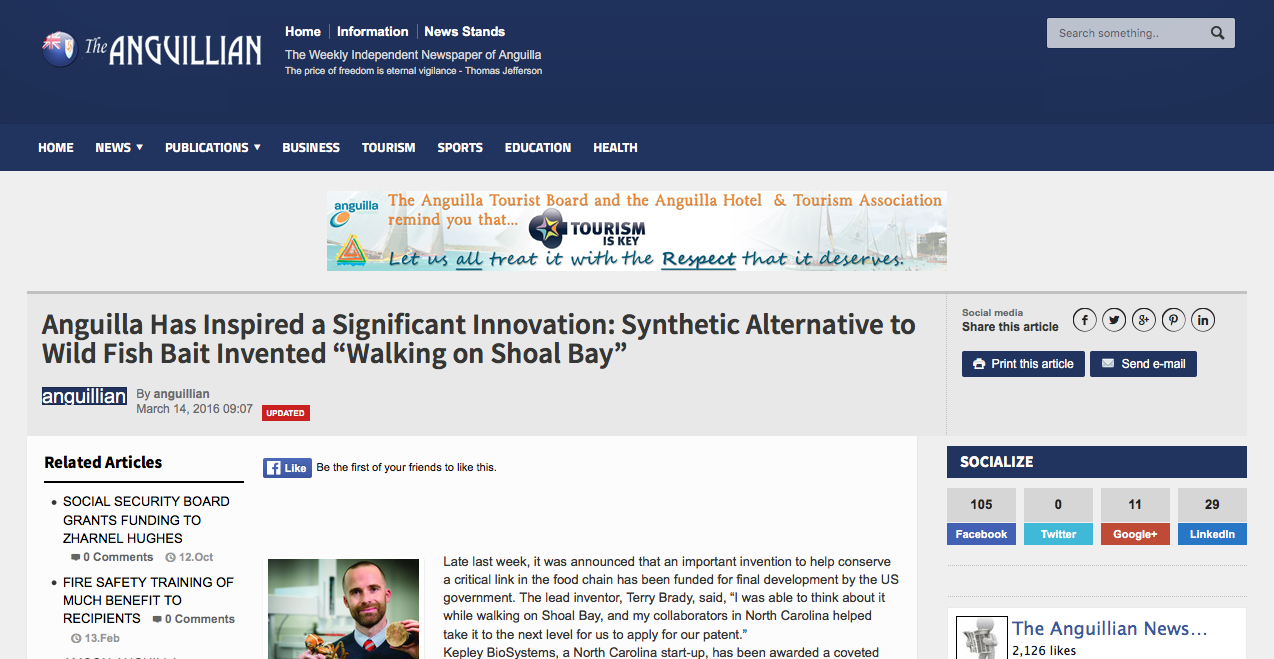Kelpley BioSystems, and our founders Anthony Dellinger and Terry Brady, were recently featured in an article in The Anguillian newspaper. Read more here.
They write:
Late last week, it was announced that an important invention to help conserve a critical link in the food chain has been funded for final development by the US government. The lead inventor, Terry Brady, said, “I was able to think about it while walking on Shoal Bay, and my collaborators in North Carolina helped take it to the next level for us to apply for our patent.”
Kepley BioSystems, a North Carolina start-up, has been awarded a coveted National Science Foundation (NSF) Phase II grant for developing an alternative to help stem the continued depletion of wild “forage” fish (small species, e.g. sardines, menhaden, anchovies) using a patent-pending, synthetic crustacean bait (#14/659,710 and #PCT/US2015/2086). Crustacean fishing is a $66 billion global market that consumes over 18 million metric tons of bait fish for these traps at a cost of an estimated $20 billion per year. This technology promises to completely replace the use of fish to catch fish, lobster and crabs in this segment with a man-made and environmentally neutral alternative.
In addition to lobster and crab fishing, industrial net fishing for 35 million metric tons of forage fish per annum supplies commercial production in numerous sectors, including: agricultural additives; pig and chicken feed; pet food; fish farming (aquaculture); and Omega 3 supplement oil (with well-documented, collateral loss of dolphin and other unintended by-catch). Second only to the importance and biomass of plankton, forage fish also provide the sole food source for many other fish, mammals, and birds in every region of the world.
“It’s hardly a mystery to hear of depleted forage fish populations, with emaciated birds, seals, and whales featured in the news,” said Dr. Dellinger, president of Kepley BioSystems. “This NSF Phase II grant will support continued laboratory activities. In addition, we are planning extensive field testing to ensure the success of this ecologically urgent innovation.” The company is in an advanced stage of product development, and they will seek to further leverage this grant throughout scale up and commercialization by welcoming early investors in the coming months.
– Press Release
Thanks to The Anguillian for the article.

